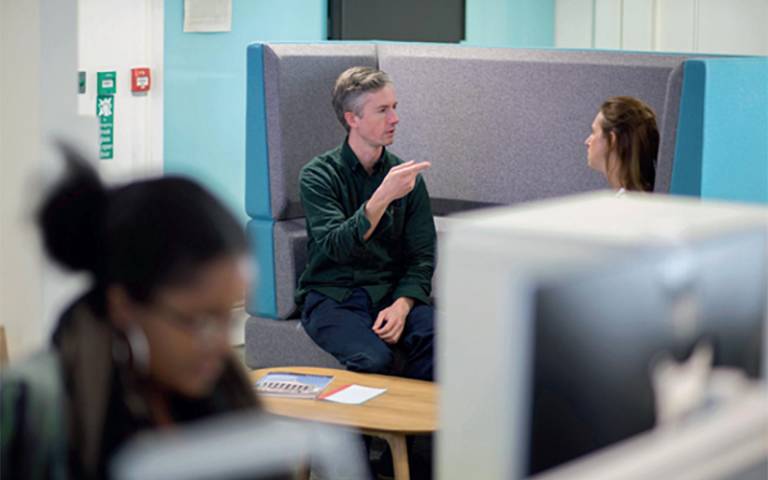The Learning and Media Technologists careers family sits within the Information Technology practice area. An example career pathway could take you from Support Officer to Head of a Functional Area.
 What is Learning and Media Technology
What is Learning and Media Technology

Roles in Learning and Media Technology at UCL help academics and students access and make best use of a wide range of technologies to enhance learning and support the broader student experience. People come into this area through a wide range of routes and there is no dominant academic background. Increasingly, however, professionals in these roles have second degrees in education-related fields, and all are encouraged to gain Advance HE fellowship or Certified Membership of the Association for Learning Technology.
Many learning and media technologists move into this job family from other careers – this is perhaps unsurprising given that learning technology has really only become an established field in the last 20 years. Some have worked as teachers, from school to degree level; some have research degrees; some come from a career in supporting technology or service desk work; others have worked in a wide range of fields in both public and private sector; multimedia production is also a common background. One of the great things about this field is that we work at the intersection of technology and education, a genuinely exciting and important area for UCL.
We do try to think from a pedagogy first perspective, thinking of the needs of our staff and students – so that the educational need drives the way in which technology is used. However sometimes it is fun to discover a great teaching application of a technology that was intended for something else and the creativity of our community is a huge inspiration to us.
Roles in this area include learning technologists, media technologists, IT trainers, learning designers, videographers, graphic designers, support analysts, and accessibility technologists. Activities include end-user support, teaching and training delivery, service administration, troubleshooting, problem-solving, advisory work, advocacy, research, supporting change, and, at more senior levels, policy and strategic work. Progression tends to involve a shift from user support and service administration at junior levels through increasingly pedagogical and/or technical specialist roles at middle levels, to operational, strategic and change management and leadership at senior levels.
Whilst the activities cross over into areas covered by the other IT career families, at UCL and in other higher education institutions, learning and media technology does offer a strong and rewarding career pathway for those with the right combination of educational and technological curiosity and commitment.
The more junior roles will often be broad, involving work with a range of media, learning and assessment tools. As staff gain more experience they might specialise – for example in media, assessment, assistive technologies, or learning design. Some may choose a more technical track; others might move into agile product roles. And, as a large team, there are a number of management roles for those seeking progression into leadership.
 Close
Close

